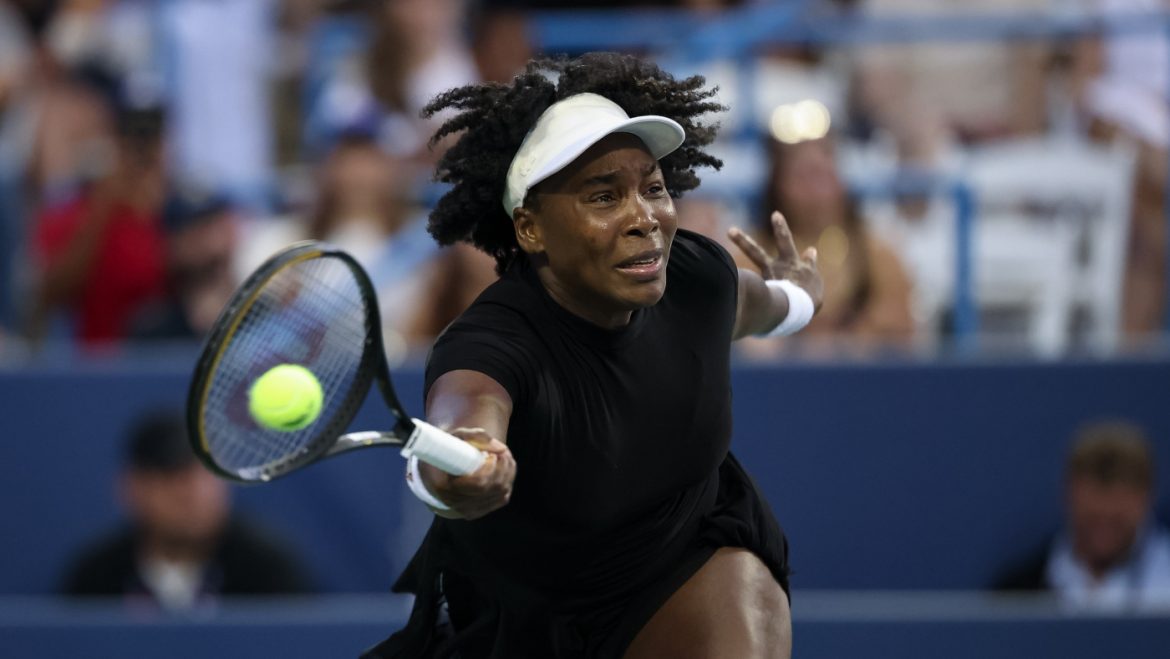The Irony of Venus Williams and the American Healthcare System
Introduction: A Tennis Star’s Candid Revelation
Venus Williams, a name that evokes images of power, elegance, and dominance on the tennis court, recently made a statement that transcended the boundaries of sports. During a post-match interview at the Mubadala Citi DC Open, she quipped, “I’m back to get my benefits on!” This seemingly lighthearted remark carried a profound message about the state of healthcare in the United States. It highlighted the stark reality that even someone of her stature and success must prioritize health insurance, shedding light on the broader issues within the American healthcare system.
The WTA and the Illusion of Comprehensive Coverage
The Women’s Tennis Association (WTA) provides its athletes with what is often described as “best-in-class” global medical, dental, and vision insurance. This coverage is crucial for professional tennis players, who face constant physical demands and the risk of injuries. The WTA’s commitment to its players’ well-being is evident in the comprehensive nature of this insurance package. However, the reality is more nuanced.
While the WTA’s insurance is robust, it does not eliminate the financial anxieties that many athletes face. The income disparity within professional tennis is significant. Only a small percentage of players earn substantial prize money and lucrative endorsements. For the majority, the financial strain of maintaining a career in tennis is immense. Travel expenses, coaching fees, and other costs can quickly deplete any winnings, leaving players in a precarious financial situation.
The Precarious Nature of Health Insurance
Venus Williams’ comment underscores the fact that even someone with her impressive net worth prioritizes health insurance. This is not necessarily because she cannot afford healthcare, but because she understands the potential financial devastation that can result from serious illness or injury in the U.S. healthcare system. The complexity and cost of medical care in the United States make comprehensive health insurance a necessity, even for the wealthy.
Moreover, there are gaps in coverage, particularly during breaks from competition. Williams’ year-long hiatus meant she had to actively ensure her benefits remained active. This highlights a critical issue: health insurance is often tied to employment, and any disruption in that employment can lead to a loss of coverage. This vulnerability is not unique to athletes but is a systemic problem within the American healthcare system.
The Broader Implications for Athletes
Williams’ situation resonates with a much wider audience than just tennis enthusiasts. It highlights the precarious nature of healthcare for many athletes, particularly those in less-lucrative sports or those transitioning out of their professional careers. The physical toll of a professional sports career often leads to long-term health issues, making access to affordable healthcare even more critical for retired athletes.
Many athletes face a “cliff” when their playing days end, losing access to team-sponsored health insurance and struggling to find affordable alternatives. Joint problems, chronic pain, and other injuries sustained during competition can require ongoing medical care, and the lack of insurance can be a significant barrier to receiving that care. The need to continue playing, even when the body is telling you otherwise, simply to maintain health insurance, is a reality for many athletes. This creates a system where athletes may be forced to prioritize financial security over their long-term health and well-being.
The Reflection on the American Healthcare System
Perhaps the most significant takeaway from Williams’ comment is the uncomfortable reflection it casts on the American healthcare system. The fact that even someone of her stature feels the need to prioritize health insurance highlights the systemic problems that plague the nation.
The Employment-Based System
The reliance on employer-sponsored health insurance leaves millions vulnerable to losing coverage when they lose their jobs or retire. This system creates a direct link between employment and healthcare access, leaving many in a constant state of uncertainty. The precarious nature of this system is evident in the stories of athletes who must continue playing to maintain their insurance, even at the risk of further injury.
The High Cost of Healthcare
The exorbitant cost of medical care in the U.S. makes health insurance a necessity for most people. Even with insurance, high deductibles and co-pays can make it difficult to afford necessary care. The financial burden of healthcare can be overwhelming, particularly for those who are not among the top earners in their profession. The fear of medical bankruptcy is a very real concern for many Americans, including professional athletes.
The Complexity of the System
Navigating the American healthcare system can be incredibly complex, with a confusing array of insurance plans, billing practices, and medical jargon. This complexity can be overwhelming, even for those with resources and education. The lack of transparency and the bureaucratic hurdles make it difficult for individuals to understand their coverage and access the care they need.
The Lack of Universal Coverage
Unlike many other developed countries, the U.S. does not have a system of universal healthcare, leaving millions uninsured or underinsured. This lack of universal coverage creates a patchwork system where access to healthcare is often determined by one’s employment status, income, and geographic location. The result is a system that is inequitable and inaccessible for many.
The Final Set: A Call for Change
Venus Williams’ seemingly offhand comment was more than just a joke. It was a powerful reminder that the American healthcare system needs reform. It’s a call to re-evaluate how we provide healthcare to our citizens, including our athletes who dedicate their lives to entertaining and inspiring us. Perhaps, by acknowledging the irony of a tennis superstar needing to play for insurance, we can begin to address the systemic issues that leave so many vulnerable.
Her words serve as a rallying cry for a more equitable and just healthcare system, where access to care is a right, not a privilege, and where no one, regardless of their income or fame, has to choose between their health and their livelihood. The game is far from over, and the fight for healthcare access continues. It is time for a system that prioritizes the well-being of all individuals, ensuring that everyone has the opportunity to live a healthy and fulfilling life.


